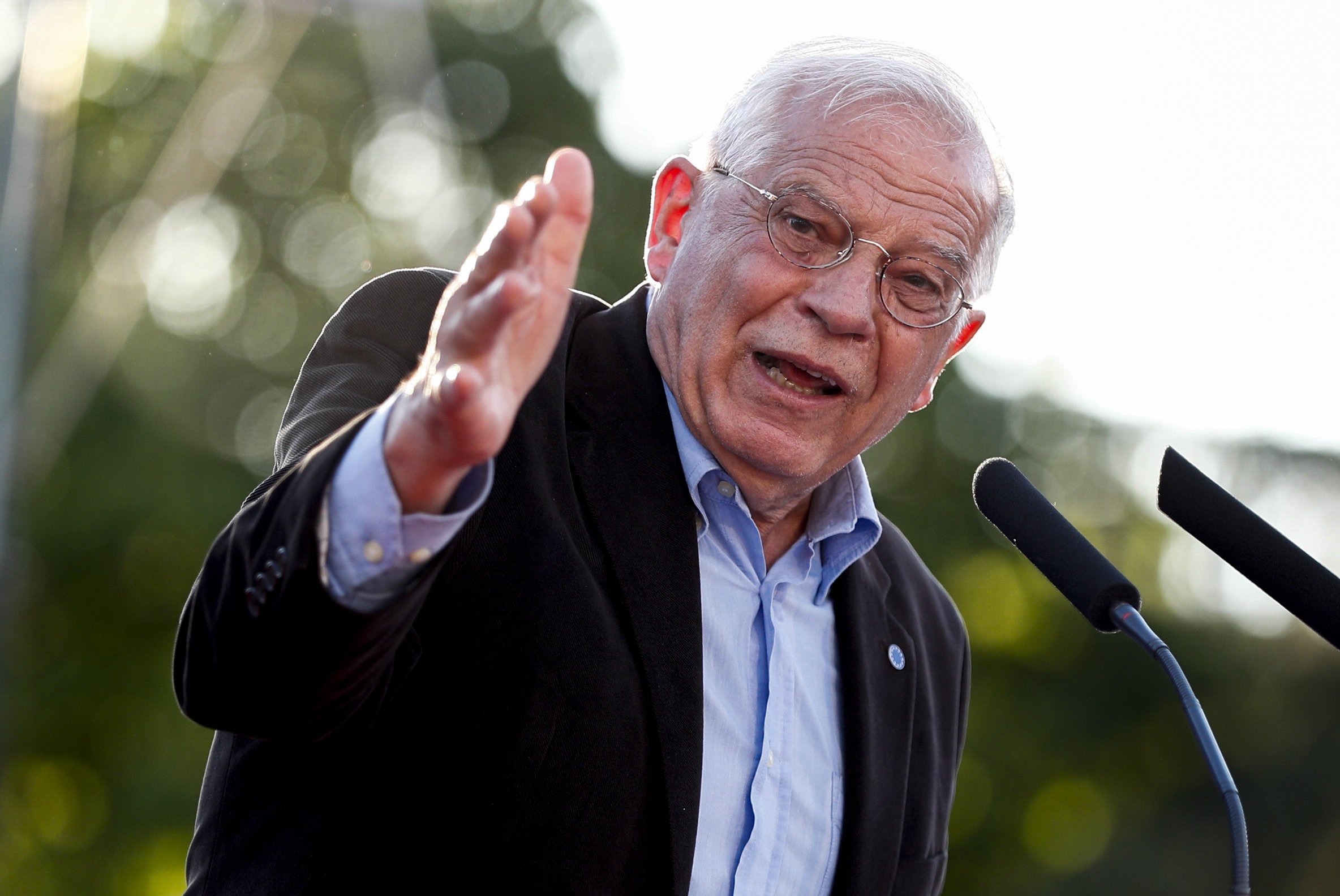Acting foreign ministe, Josep Borrell, has remained vigilant in his crusade against any speech favorable to Catalan independence outside the Spanish borders. And it seems that nothing escapes him. In fact, he did not miss the intervention of Catalonia's president in exile, Carles Puigdemont, at the Crans Montana Forum held in Geneva in late June, and, above all, the presentation made by the president of the entity, Jean Paul Carteron, denouncing the existence of prisoners and exiles.
In an open letter published this Monday in the Tribune de Genève newspaper, Borrell is "surprised" by the words Carteron dedicated to president Puigdemont. The head of the Spanish diplomacy openly criticises Carteron's attribution of pro-independence leaders' preventive jail to the fact that they do not share the same views of the Spanish government, and calls it "an astonishing lack of knowledge" for a person of his responsibility, as well as what he calls an "improper lightness" by the Head of the forum where he had himself been a participant in past editions.
Borrell accuses the president of Crans Montana Forum of having questioned the rule of law in Spain and regrets that it is clear from Carteron's words that the Spanish government would have ordered the judges a political persecution, which he claims to be insulting.
In his letter, the minister also offers his own account of what happened in Catalonia, denying any persecution against the expression of political opinions in Spain, and giving assurances that the prosecution of the pro-independence leaders is for their actions not their ideas.
Also, regarding Puigdemont not having been able to take his MEP seat, he recalls that the president of the EU general Court determined that there is no sufficient legal base to dictate precautionary measures for acknowledging the seat ("the conclusion arrived at by the CJEU: that there was no scope for the EP to verify the declaration by the Spanish authorities and that "consequently, there was also no scope for the Parliament to accord to the applicants on a provisional basis, a seat in Parliament until their credentials had been verified” ".
"I dare think that a person with your reputation could not approve a formula so valued for Puigdemont and his entourage, according to which democracy is above the law. I hope that you will agree with me that in a rule of law, such propositions make no sense" -he says.
Finally, he underlined that the European Court of Human Rights (ECHR) dismissed the appeal against the Spanish Constitutional Court's decision to suspend the plenary of the Catalan Parliament declaring independence. "The laws, as the ECHR remembers, can be changed, but by legal and democratic procedures, trying to overthrow the constitutional order of a democratic state, like Spain, cannot be lawful" -he concludes.

